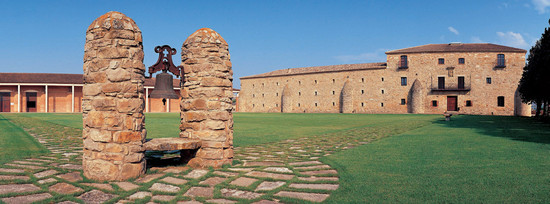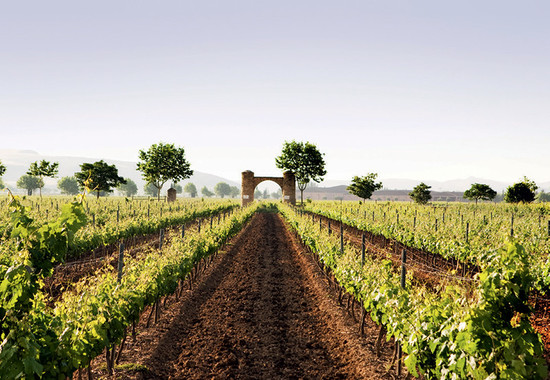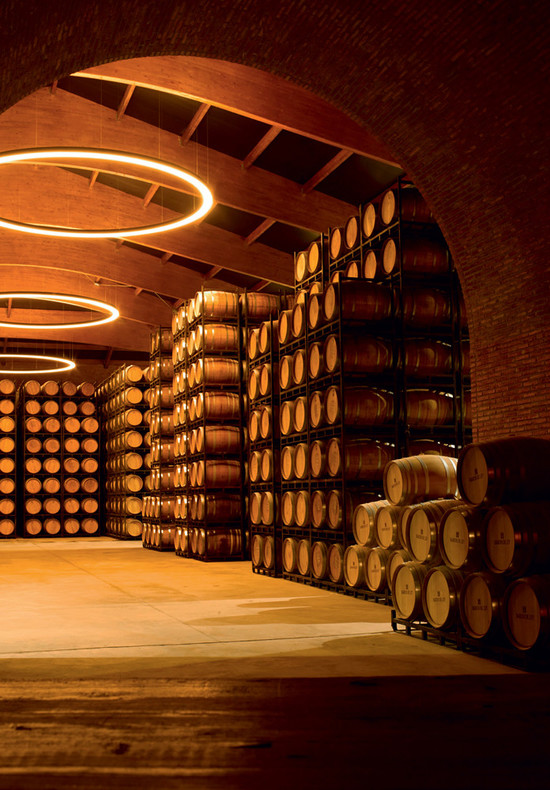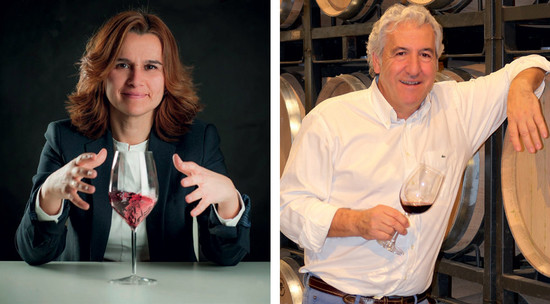When Baron de Ley was founded in 1985 by a group of renowned professionals, they embarked upon a trail-blazing project: to create a Rioja DOC winery in the image of Medoc chateaux.

They built their winery at the very heart of a historic estate, next to a 16th-century monastery where Benedictine monks began making wine over 500 years ago.
Their philosophy was simple yet ambitious, they wanted to return to the essence of Rioja winemaking – specialising in Reserva and Gran Reserva wines.
Hand-crafted wines: balancing tradition and creativity

At Baron de Ley, everything began with the vineyards. The founders fought to acquire and plant the best vines, growing the estate to more than 600 hectares.
From these vineyards they have carefully crafted their Reserva and Gran Reserva wines over decades.
Aside from these Rioja classics, the oenological team constantly experiment with innovative new wine styles.
Noteworthy creations include wines that revive local Rioja varieties, such as Graciano, Maturana and red or white Grenache, plus the Tres and Siete Viñas collections.
Crucially, Baron de Ley believes in hand-harvesting and selecting all of the grapes used in the production of their wines. With the result that the sorting table sees more than 1.5 million kilos of grapes per year – a milestone for Rioja. Ever-evolving to boost quality. Baron de Ley’s latest expansion includes a new space with room for 30,000 casks, ensuring the winery will have room to grow while still maintaining the quality and consistency of the wines.
Whites and rosés are becoming increasingly important at Baron de Ley. A new facility has been custom built to make these wines the traditional way, using small batches in 9,000-litre cement tanks.
As for the reds, Baron de Ley has returned to the use of cement tanks for ageing the wines. This practice promotes slower evolution of the wine, which in turn fosters fresh and fruity flavours.

In addition, the oenological team completed an R&D project to identify indigenous yeasts and installed the technology necessary to produce them in the winery. These changes are aimed at producing wines with even more personality and individuality.
Baron de Ley’s winery has already been expanded twice and its continual growth is driven by two main factors.
Firstly, the expansion is a testament to the worldwide success and popularity of its wines, which are sold in over 50 countries. Secondly, a winery specialising in Reserva and Gran Reserva wines requires ample space to age its wines – both in barrel and bottle.
But Baron de Ley’s greatest changes are yet to come. Over the past two years, the team have pushed hard to maintain business as usual while major construction work has been underway.
But for the winemakers, the latest project has a been a great opportunity as well as a great challenge, as they were able to shape design of the new winery as it was built.
In 2019 Baron de Ley will be at the forefront of winery technology in Rioja, giving the winemakers new tools to express their creativity and explore their curiosity.
A hard-to-beat tandem

Gonzalo Rodriguez (oenological advisor) and Marte Calvo (technical director) have been a professional partnership for more than 20 years, to their mutual benefit. Gonzalo's creativity and experience complement the rigour and meticulousness Maite is known for.
Their successes together include Baron de Ley being named IWSC Best Winery of the Year, twice, and Baron de Ley Reserva (95+) being considered the best Rioja wine by Decanter.
Baron de Ley, Reserva

Ruby-red in colour. On the nose this surprises you with a powerful fruity character, mingling
with the traces of noble ageing: coconut, toffee and wild herbs nuances. A strong attack is countered by a soft, supple mouthfeel that slowly extends across the palate, ending in a long finish with lingering herbaceous and red berry notes.
Baron de Ley, Varietal Maturana

Deep purple hues with a fruit compote nose, commingling with balsamic, mint and cocoa aromas. Warming on the palate, with silky and well-integrated tannins, plus underlying mineral tones. Full and elegant with a persistent finish.
Baron de Ley, Blanco Reserva 3 Vinas

Attractive, bright golden- yellow colour. On the nose there is a cascade of intense aromas: dried raisins, almonds and aromatic herbs, followed by honeyed tones and autumnal fruits. The palate is lively, lasting, deep and complex, with mineral undertones and a salty edge.
Translated by ICY
All rights reserved by Future plc. No part of this publication may be reproduced, distributed or transmitted in any form or by any means without the prior written permission of Decanter.
Only Official Media Partners (see About us) of DecanterChina.com may republish part of the content from the site without prior permission under strict Terms & Conditions. Contact china@decanter.com to learn about how to become an Official Media Partner of DecanterChina.com.

Comments
Submit